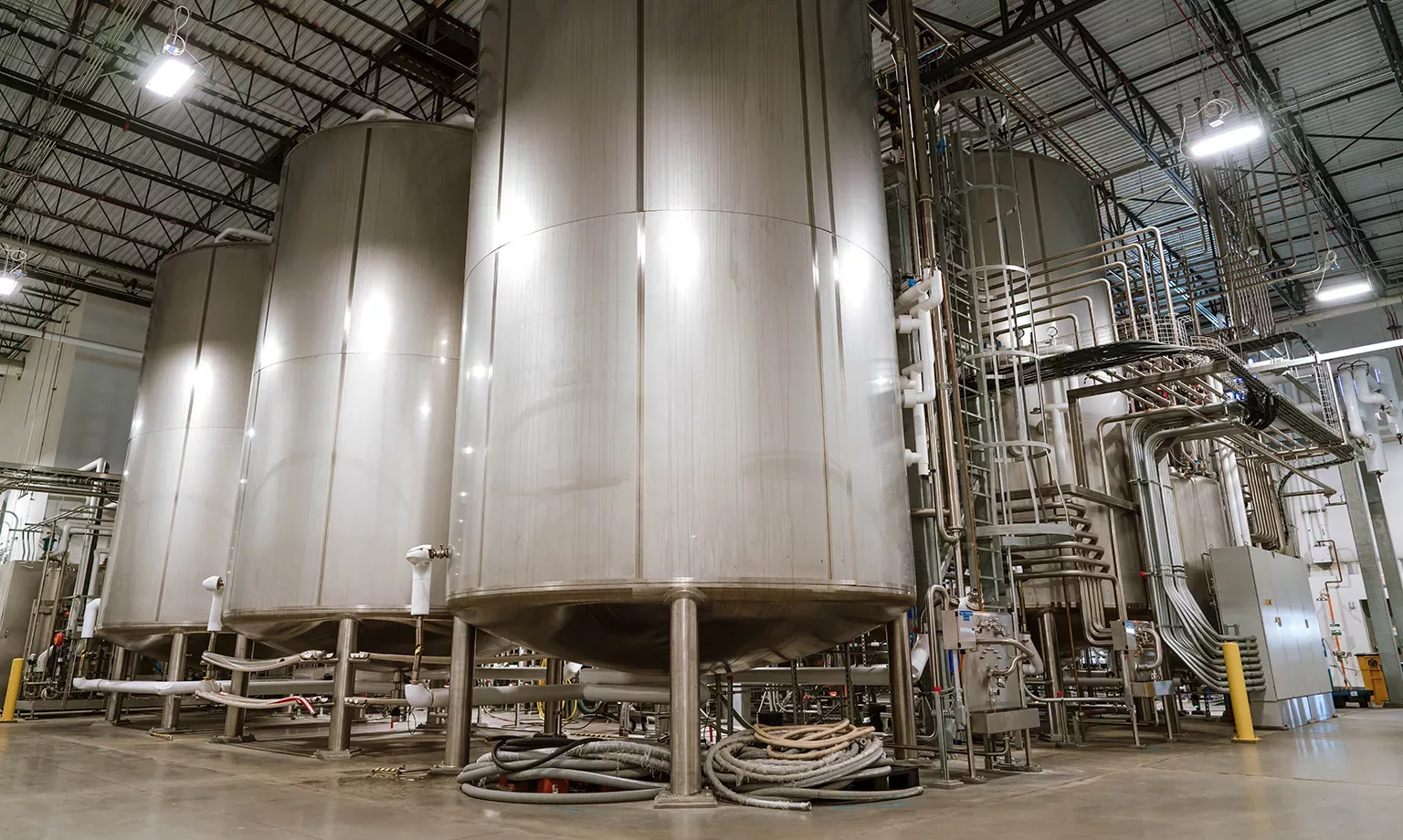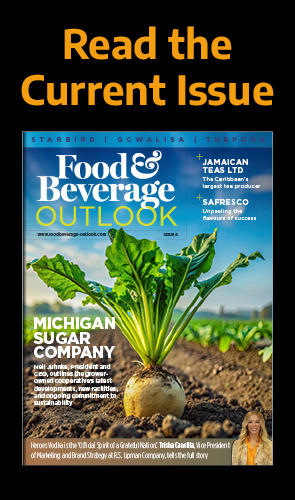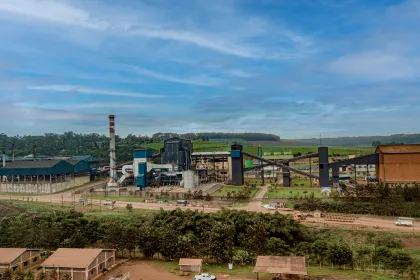Through the process of mushroom mycelial fermentation, MycoTechnology is at the cutting edge of the food and beverage industry with the advanced combination of food sustainability and biotechnology.
HARNESSING THE FIFTH KINGDOM
In the world of biotechnology (BioTech), the notion of mushroom mycelial fermentation seems to be a relatively new phenomenon. And yet, the use and consumption of fermenting foods has been part of the human diet for centuries, in the creation and consumption of beer, wine, bread, tofu, and much more. Therefore, the use of fungi to enable food security is a reliable but exciting move forward, as the humble mushroom becomes a cornerstone of the future of food.
As titans of the food fermentation and protein alternatives sector, MycoTechnology is tackling the predominant issues of the food and beverage industry: taste, nutrition, sustainability, and food security.
FUTURISTIC FUNGI
MycoTechnology is world renowned for its work in creating unqiue ingredients, tastes, and textures. FermentIQ™, derived from mycelial fermentation, is used to manipulate plant proteins to improve the taste, texture, and nutritional value of plant-based ingredients to be more competitive with animal counterparts. Additionally, ClearIQ™, also obtained from mycelial fermentation, helps reduce off-notes, enhance desirable notes, and optimize flavor profiles. MycoTechnology use a specific proprietary fermentation proccess that is targeted to create ideal characteristics of flavor and texture.
As humble members of the fungi kingdom, mushrooms obtain energy externally, unlike the internal energy consumption of humans. Fungi secrete a variety of powerful enzymes into the external environment and then absorb these predigested foodstuffs back into their cells. It is then the job of the enzymes to break down organic matter into simpler nutrients, such as sugars, nitrates and phosphates, which is all controlled by the mycelia.
In non-scientific terms, the mycelia are the engine of the mushroom. In more natural environments, the mycelia’s role is to cleanse the forest floor of toxins and indigestible matter. Additionally, the mycelia also provide nutrients for the surrounding plants to maintain the forest’s ecosystem.
As the lifeblood of the mushroom, the mycelia can easily adapt to its surrounding environment. As a result, certain mushrooms have 500 times more digestive enzymes than humans, allowing mycelium to consume a wide variety of substances and thrive on the forest floor.
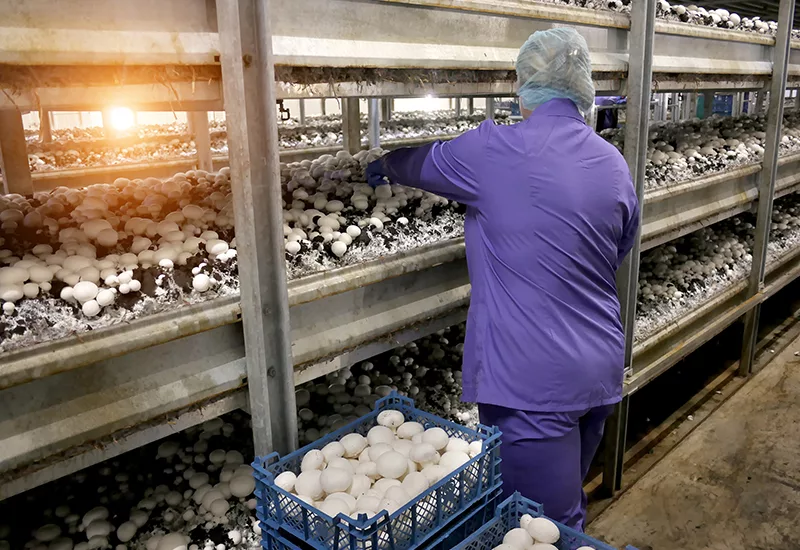
MOBILIZING THE MUSHROOM
Founded in 2013, BioTech giant MycoTechnology has been harnessing the powerful properties of the mycelia, and its place in nature, to elevate the food and beverage industry to a new level.
Due to its adaptability and growth speed, the mycelia is an incredibly versatile organism to work with, as it requires limited human intervention, and its natural properties allow the fermentation process to be conducted on a large scale.
Consequently, MycoTechnology has utilized the natural fermentation process of the mycelia to create specialized proteins and ingredients. This process has opened the door to new tastes, textures and nutrition levels, expanding biodiversity.
To complete the fermentation procedure, MycoTechnology has constructed a platform in which the mushrooms are trained to digest a liquid substrate, rather than ferment solid materials as they would do in the natural ecosystem. Thus, the mycelia are encouraged to survive on a liquid diet, as the resulting by-product is collected as the special ingredient.
MAXIMIZING FLAVOR
The work of MycoTechnology has been instrumental in combating the unhealthy and unsustainable habits of the world’s appetite. Evidently, one of the biggest issues facing North America, alongside the rest of the world, is a sugar epidemic. The over consumption of sugar is causing a serious health crisis, with only 15 percent of the global population considered healthy. Consequently, the world has relied on the power of sugar and its addictive flavor.
To tackle such a wide-reaching problem, MycoTechnology has introduced ClearIQ™, which is a flavor modifier that enhances and subsequently reduce the need for excess sugar and other masking agents. Along with the battle against the realm of sugar, ClearIQ™ is also making waves in the taste and texture of meat and dairy alternatives, as well as snacks, protein shakes, and even baked goods.
Furthermore, the introduction of FermentIQ™ uses plant protein to improve taste, texture and the nutritional quality of meat and dairy alternatives. Both these innovative ingredient lines provide solutions that can create healthier, better tasting food and beverages by naturally enhancing the taste of nutritious ingredients.
Looking at the case of meat alternatives in more detail, the use of FermentIQ™ has transformed the texture to more accurately mimic ground beef. The FermentIQ™ ingredient is made by fermenting pea and rice protein with shiitake mycelia, in a texturized format, to create superior meat alternatives. The process improves flavor, aroma, digestibility, and functionality, providing a juicy, meat-like texture and experience.
FEEDING THE FUTURE
One of the greatest issues facing future generations is exponential population growth. A pressing issue to result from this is food security; in less than two decades, global food resources will no longer be able to support the population.
Through the advanced research of MycoTechnology, the company is discovering new ways to harness the power of mushroom mycelia to upcycle waste streams and create healthier, more stable and sustainable food systems that can address food security and environmental concerns.
Therefore, through the advanced BioTech force that is MycoTechnology, ground-breaking research in mycelial fermentation will transform the food and beverage industry to create revitalized and delicious food for the future.
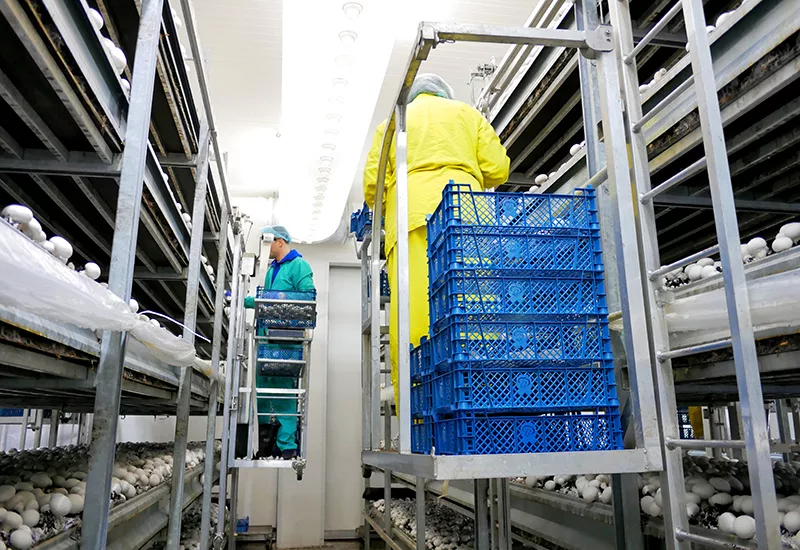
LIQUID FERMENTATION PROCESS
- The culture of a specific mushroom mycelial variety is inoculated in a sterile environment. The initial fermentation takes place and is designed to initiate growth, induce the mycelia’s digestive process and encourage specific enzymes.
- The fermentation travels through increasingly larger tanks. In each tank, the mycelia adjust to their new environment and continue to secrete differential enzymes.
- Once the mycelium has reached maturity, different ingredients can be extracted for their specific compounds, with each ingredient being utilized as a food solution.



